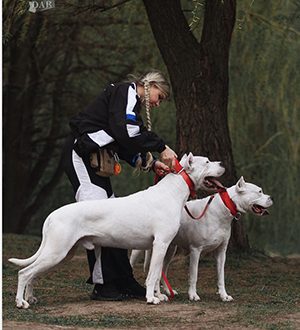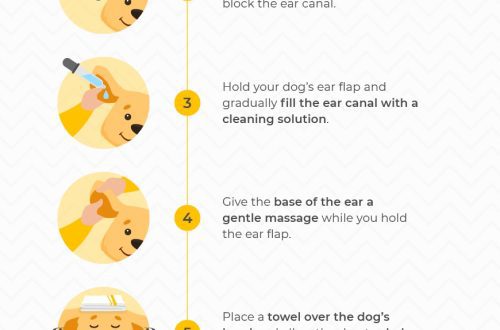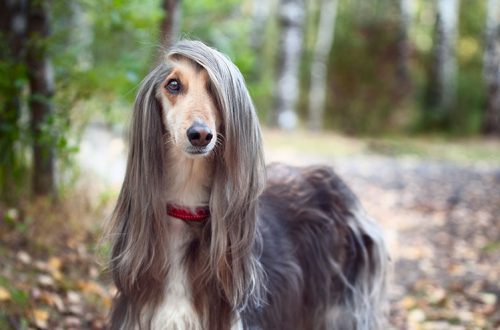
What to feed an older dog?
Why do dogs gain weight as they age? What processes take place in their body? What should an older dog eat to keep it active and healthy as long as possible? Let’s talk about this in our article.
Old age is a conditional concept. For every dog, it comes at its own time. It depends on breed characteristics, general health, quality of care throughout life, and even on the ecology of the area where the dog lives.
Large dogs, unfortunately, live less than medium and small ones. If the life expectancy of a Yorkie is 15-20 years, then the Irish wolfhound is only 8-10. Accordingly, large dogs age faster than the rest.
Conventionally, we can say that in miniature dogs, old age occurs at 9-10 years. In the middle – at about 8 years. And large dogs can be called elderly already at the age of 7.
Old age is not a sentence. This is a natural stage in the life path of any pet. If you properly prepare for it and provide careful care, your pet will live happily ever after.
What you need to know about older dogs Increasingly, they prefer a quiet walk instead of chasing a ball, they sleep more, move less in general. The dog may become more capricious in nutrition, change his eating habits, start picky. Over time, she may develop dental problems. The musculoskeletal system of the dog will also need support: bones, joints and ligaments.
The main thing that a responsible owner should do is to provide a complete balanced diet. This is the foundation of the foundations. Appropriate nutrition will help avoid the overweight problems that all older dogs are prone to, and provide the body with all the minerals and vitamins needed at this stage.
What age-related changes occur with a dog in old age?
The body begins to slow down its systems. Slows down blood circulation and metabolism. The digestive system does not work as efficiently. Therefore, the energy received from food is not burned instantly, as at a younger age, but is more easily deposited in the form of excess weight.
Also in females, hormonal changes occur, which also affects the slowing down of metabolism. Namely, the sex hormone estrogen is produced less, against this background, in some cases, the dog may even develop insulin resistance and, as a result, with an improperly selected diet, weight gain.
Another change in the hormonal system can lead to a sharp increase in body weight with age. For example, a malfunction of the thyroid gland, which develops or worsens in old age.
Stress in the life of an older dog can also turn into excess weight. If young animals lose weight from stress, then the elderly, on the contrary, gain weight. This is because the body is increasingly difficult to resist the attacks of adrenaline. To cope with stress, it produces the hormone insulin, which, in large quantities, when the endocrine system is disrupted in old age, contributes to the accumulation of fat.
However, the speed of metabolic processes directly depends on lifestyle and nutrition. To minimize the risks and keep your dog in good physical shape, you must first provide him with the right diet.
Choose a pet food that is formulated specifically for older dogs. Carefully study the composition: in the first place in the list of ingredients should be meat. The feed class must be at least super premium. This is the only way you can be sure that the ingredients in the feed are of high quality and safe.
An older dog’s diet should be high in protein and low in fat. With age, the body uses less energy, which means that the calorie intake for an older dog needs to be reduced. In addition, a good diet should include L-carnitine to improve fat metabolism and support the cardiovascular system. In addition, the right ratio of omega-3 and -6 fatty acids will control inflammation and are essential for maintaining healthy skin and coat. And supporting the work of the intestines and taking care of the immune system can be trusted with substances such as prebiotics.
You will not need to worry about the composition if you choose a good, complete, balanced food. It will include everything that an elderly dog needs to maintain health. You just have to follow the norm of feeding and not break the diet.
Don’t overfeed your dog. This can cause constipation or diarrhea.
If the dog has diseases of the oral cavity and teeth hurt, it is better to choose wet food for it: canned food, pates, spiders. Alternatively, dry food can be diluted with a little lukewarm water. However, if you have any health concerns, be sure to consult your veterinarian. It is possible that a problem with the mouth may be a sign of some internal disease that will not be cured by the soft texture of the food.
The transition to senior dog food should be gradual and take at least 10 days. It is advisable to choose food for older dogs of the same brand. Different lines of the same manufacturer are better combined with each other than food from different manufacturers. Gradually add the new diet to your dog’s usual food. At first, you can add 20% of the new food to 80% of the old. And gradually change the amount in favor of the new diet until you completely remove the old one.
All this applies to classic diets for older dogs, which keep the animal in a healthy state against the background of age-related changes in the body. But if the dog is already overweight or has other health problems: arthritis, kidney failure, heart disease, diabetes, etc., then the pet will need not just a diet for older dogs, but a special therapeutic diet. It will help keep the disease under control so that it does not affect the quality of life of the pet.
The therapeutic diet must be prescribed by a veterinarian.
Proper diet is the foundation of the basics of caring for an elderly pet. It is important not just to choose high-quality food. It is necessary to observe the feeding rate, monitor sufficient fluid intake, choose exclusively healthy treats and in no case indulge the dog with food from your table.
By adhering to the rules of feeding, you will give your pet strength for an active, long, happy life.





